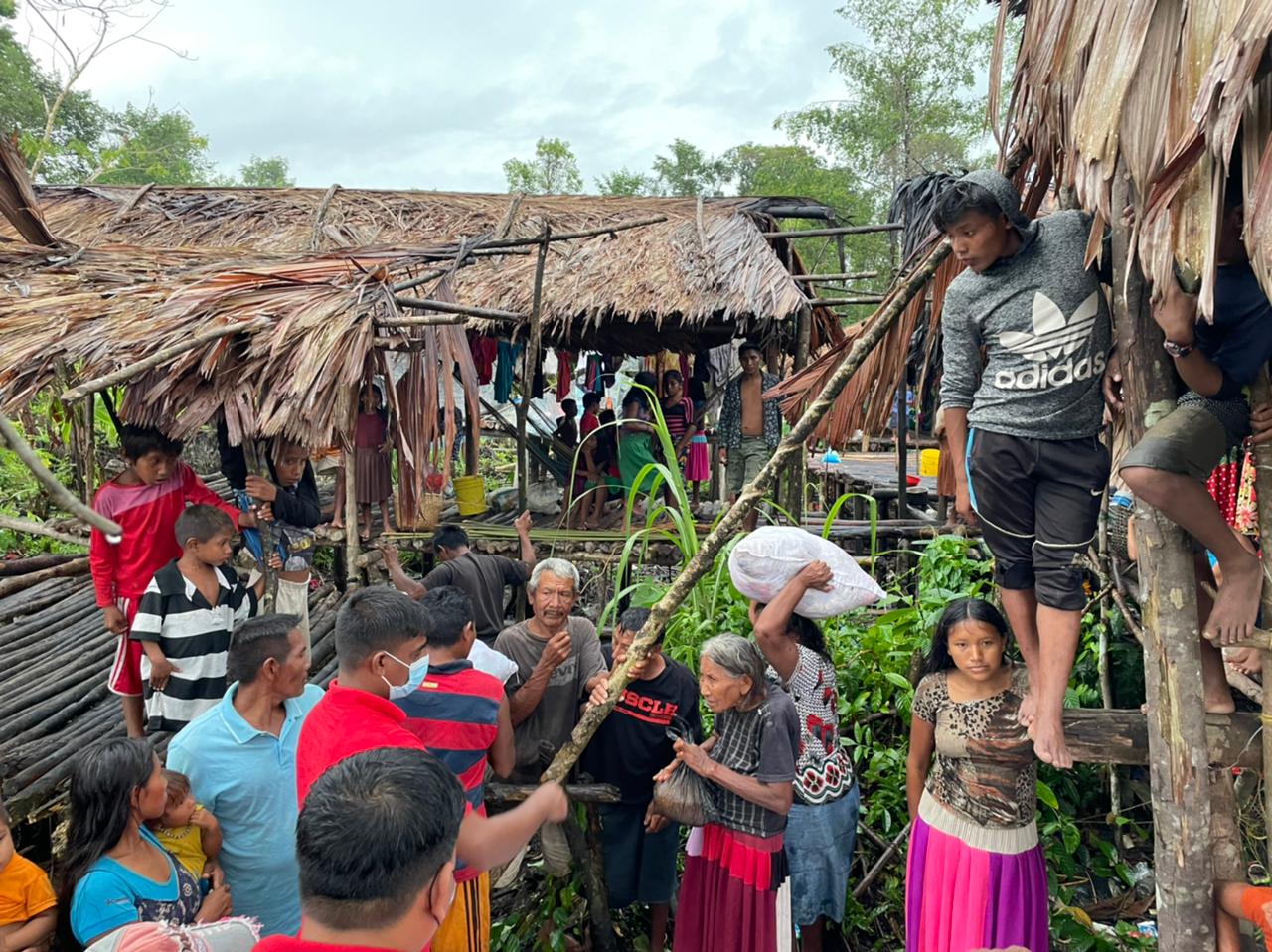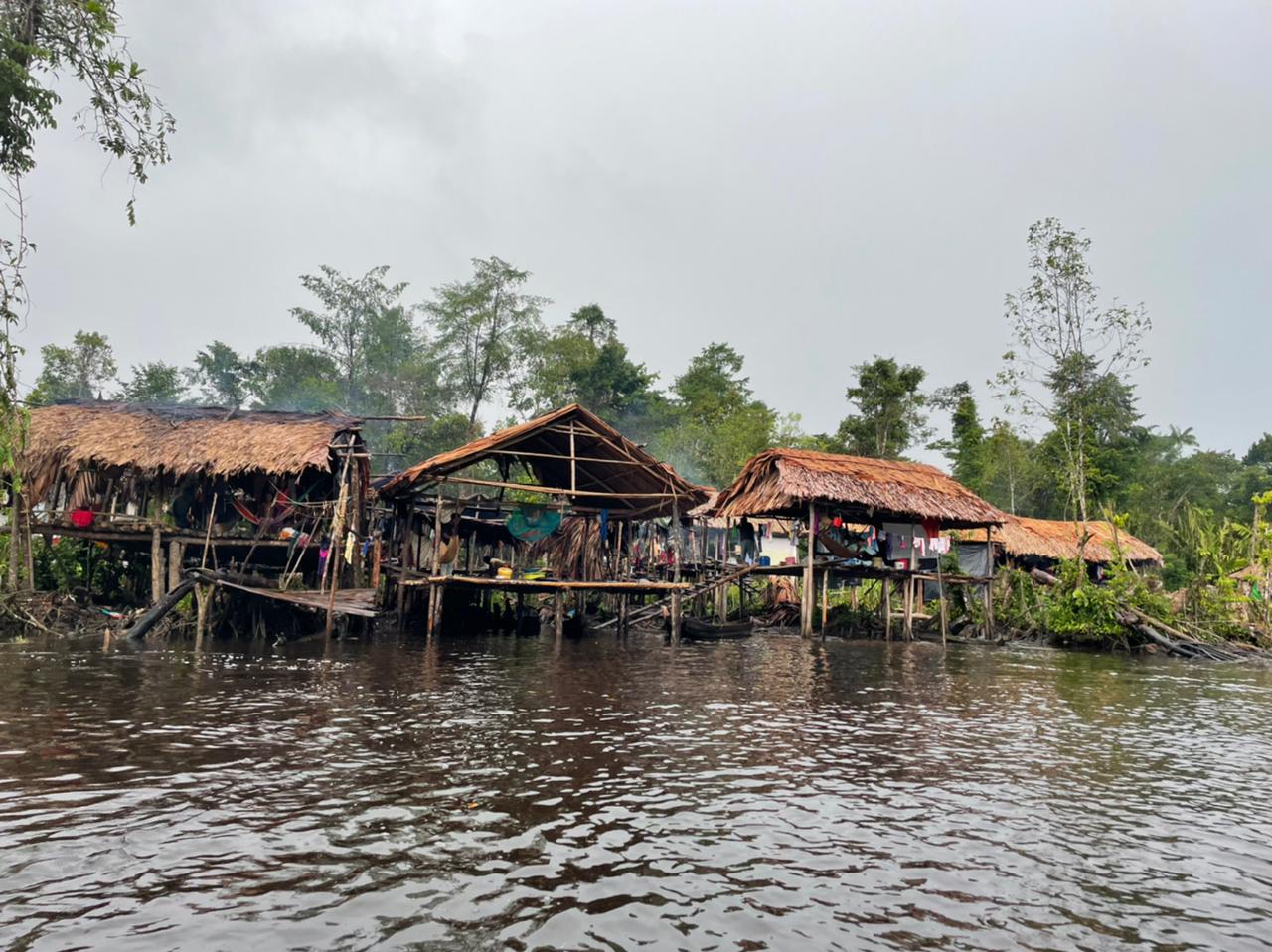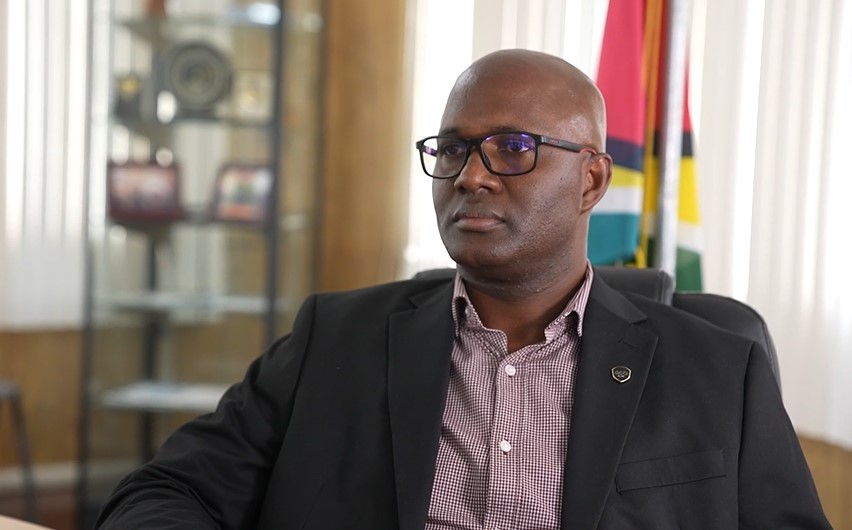
An estimated 198 Venezuelan migrants, including dozens of children, who have settled in Anabisi, Port Kaituma in the North West District of Region One (Barima- Waini), are now able to access much-needed healthcare at the Port Kaituma hospital in the region.
This is according to the Minister of Health Dr. Frank Anthony, who provided an update on the health condition of these migrants after visiting the area on Saturday.
Then, in response to reports of the dire circumstances the people are facing, a team, including several government ministers, went into the community to provide medical care and assess their needs.
While responding to a question from the News Room on Monday, Dr. Anthony said that individuals within the community have been identified as liaison officers and will be responsible for coordinating with the local authorities.
“… if they have any medical challenges, they will be able to sort them out very quickly.
“… They now have a systematic way if they have any problems that they can come to the Port Kaituma hospital and get access to medical service,” Dr. Anthony highlighted.

Anabisi is located about 10 minutes (by boat) away from Port Kaituma, which is one of the more populated communities in Region One.
On Saturday, some 20 children, who were believed to be among those in greater need, were examined.
On Sunday, another medical team returned and Dr. Anthony said that the team was able to assess about 25 more children.
Many of the children were found with similar illnesses on both days. These included: impetigo (a bacterial infection on the skin), upper respiratory infection, conjunctivitis (commonly called ‘red eye’) and mild diarrheal diseases. And Dr. Anthony said much of this is caused by the limited access to clean water.
“Because of the unhygienic conditions, they’re using the same water from the river and they’re using the river to wash and do other things there. So, the water is not of good quality,” the Health Minister explained on Monday.
To mitigate this issue, Dr. Anthony said that jerry cans were provided to the people who have settled at Anabisi. These cans allow for stored water to be filtered, allowing the migrants to access cleaner water.

The Health Minister also noted that other health officials will be working with the migrants to help them identify areas to properly dispose of their garbage, and to set up toilets for the safe removal of their waste products. This is being done to reduce the contaminants entering the river water that they are using.
These efforts add to those being made to provide food supplies and mosquito nets to the people. Dr. Anthony also revealed that other authorities are seeking to provide other forms of assistance to the people.
On Saturday, Minister of Human Services and Social Security Dr. Vindhya Persaud told the News Room that further discussions are ongoing about what other avenues of support could be provided to this vulnerable group of people.
This could potentially include resettlement and/or providing some sort of employment.
In the interim, though, Dr. Persaud emphasised that a constant and sustained supply of food and medical attention is needed to help the migrants.












